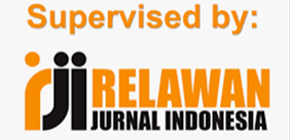KONSEP MANUSIA DALAM EKONOMI ISLAM (HOMO ECONOMICUS VERSUS HOMO ISLAMICUS)
DOI:
https://doi.org/10.52490/attijarah.v4i2.1196Keywords:
human; economy; Islamic economicsAbstract
In everyday life people tend to equate needs with wants. Sometimes people mention something as a need that must be met immediately, even though something is a wish that could have been postponed. A lifestyle that is oriented towards economic needs alone is not justified in Islam because this attitude is the same as placing economic activity as the goal of life. On the other hand, reducing the desire to maximize life activities in the economic sector is also not justified because it lowers the degree and prestige of Muslims among other people. For this reason, this research will try to unravel how the human concept is in Islamic economics. In solving the existing problems, researchers used descriptive qualitative research methods with secondary data sources. The results of this study state that fulfilling human needs in Islam does not only meet worldly needs such as eating, drinking, clothing, housing, and transportation vehicles, but humans must also meet spiritual needs or spiritual needs so that humans become human beings who have good morals, are useful, and beneficial to fellow human beings both in this world and in the hereafter.
References
Chapra, Umar. Islam dan Tantangan Ekonomi. Jakarta: The Islamic Foundation, 1999.
Gunawijaya, Rahmat. "Kebutuhan Manusia Dalam Pandangan Ekonomi Kapitalis Dan Ekonomi Islam", Jurnal Al Maṣlaḥah, 13, 1, (April 2017).
https://www.akun.biz/tips-bisnis/mengenal-homo-economicus/, 06 Oktober 2022.
https://www.taupasar.com/2019/08/homo-economicus-vs-homo-islamicus.html, 06 Oktober 2022.
Manan. Teori Dan Praktek Ekonomi Islam. Yogyakarta: Dana Bhakti Primayasa, 1997.
Sitepu, Novi Indriyani. "Prilaku Konsumsi Islam di Indonesia", Jurnal Persfektif Ekonomi Darussalam, 2, 1, (2016).
Sukirno, Sadono. Ekonomi Mikro. Jakarta: Grafisindo, 2001.
Sulthoni, Hasan. "Prilaku Konsumen Dalam Perfekif Ekonomi Islam: Teori Dan Praktek". Jurnal Ekonomi Syariah STAI Muhammadiyah Tulungagung 2, 2, (2015).
Wahyudi. Ekonomi Pembangunan. Madura: Universitas Trunojoyo Press, 2015.






